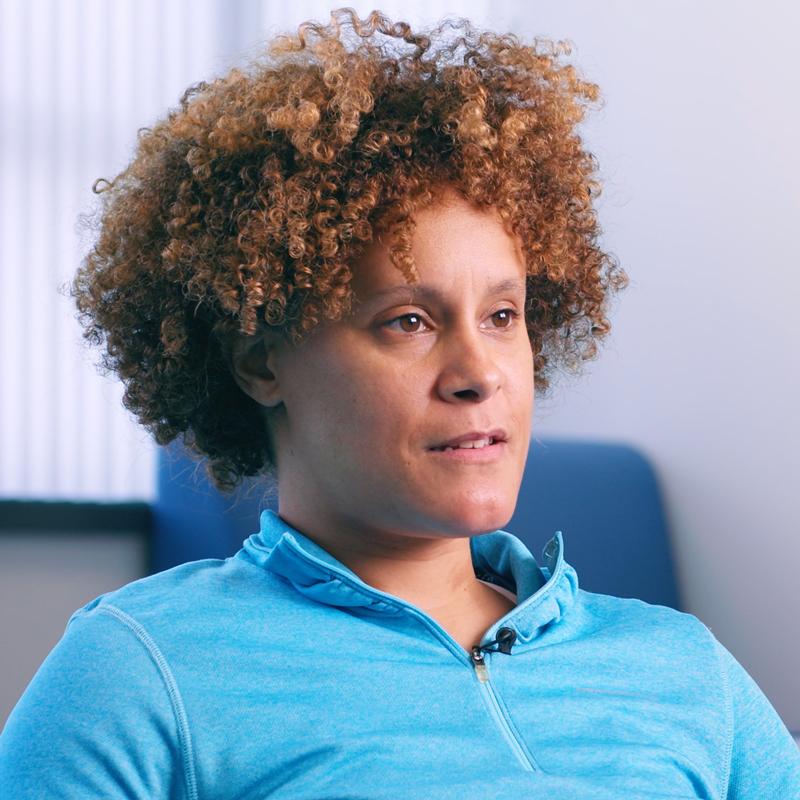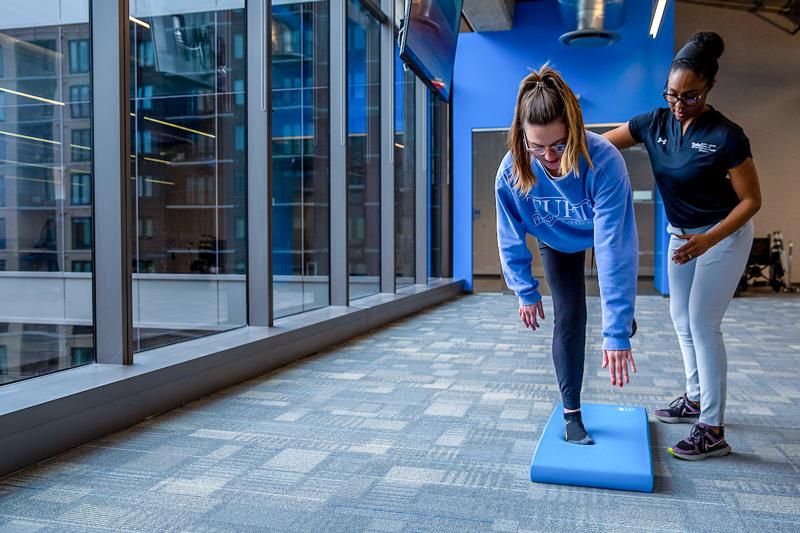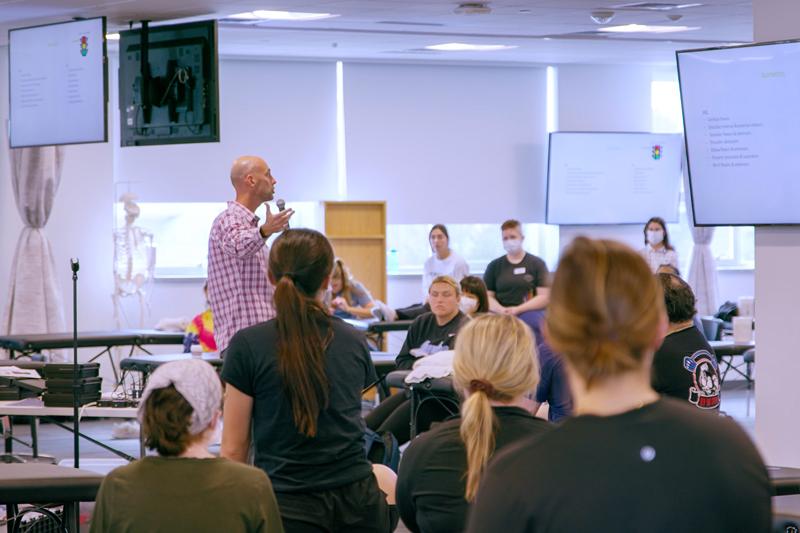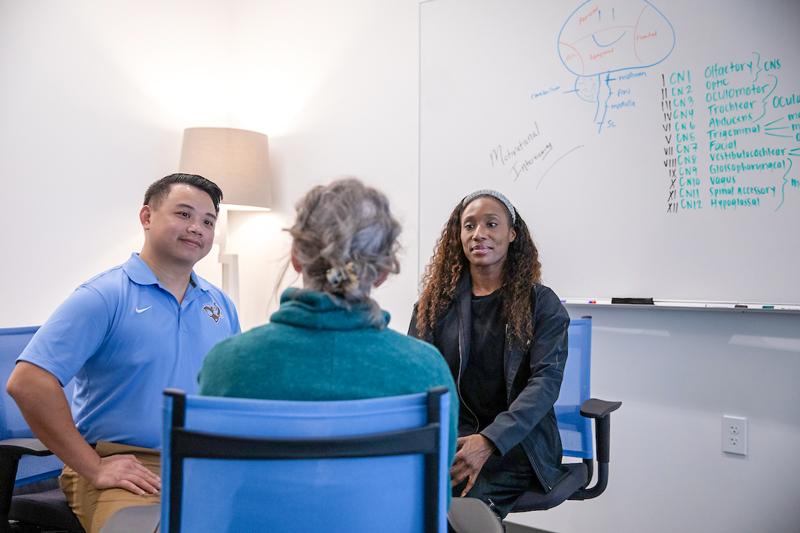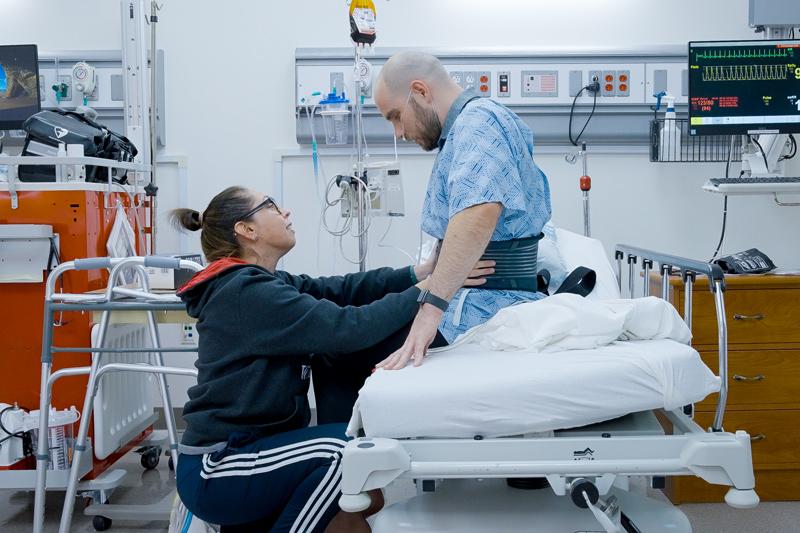DPT Program in Atlanta, GA
Tufts University Doctor of Physical Therapy Program at Atlanta, GA is seeking accreditation of a new physical therapist education program from CAPTE. The program is planning to submit an Application for Candidacy, which is the formal application required in the pre-accreditation stage, on November 1, 2026. Submission of this document does not assure that the program will be granted Candidate for Accreditation status. Achievement of Candidate for Accreditation status is required prior to implementation of the professional phase of the program; therefore, no students may be enrolled in professional courses until Candidate for Accreditation status has been achieved. Further, though achievement of Candidate for Accreditation status signifies satisfactory progress toward accreditation, it does not assure that the program will be granted accreditation.
Graduation from a physical therapist education program accredited by the Commission on Accreditation in Physical Therapy Education, 3030 Potomac Ave., Suite 100, Alexandria, Virginia 22305-3085 (703-706-3245; accreditation@apta.org) is necessary for eligibility to sit for the licensure examination, which is required in all states. Candidacy is considered to be an accredited status, as such the credits and degree earned from a program with Candidacy status are considered, by CAPTE, to be from an accredited program. Therefore, students in the charter (first) class should be eligible to take the licensure exam even if CAPTE withholds accreditation at the end of the candidacy period. That said, it is up to each state licensing agency, not CAPTE, to determine who is eligible for licensure. Information on licensing requirements should be directed to the Federation of State Boards of Physical Therapy (FSBPT) or specific state boards. A list of state boards and contact information is available on FSBPT's website (www.fsbpt.org).
Any member of the Tufts University community has the right to raise concerns or make a complaint without fear of retaliation. Anonymous complaints may be made by reporting online at Anonymous Reporting.
DPT Program in Boston, MA
Tufts University Doctor of Physical Therapy Program at Boston, MA, is accredited by the Commission on Accreditation in Physical Therapy Education (CAPTE), 3030 Potomac Ave., Suite 100, Alexandria, VA, 22305-3085; phone: 703-706-3245; email: accreditation@apta.org; website: www.capteonline.org. If needing to contact the program/institution directly, please call 617-636-4075 or email dpt.program@tufts.edu.
Any member of the Tufts University community has the right to raise concerns or make a complaint without fear of retaliation. Anonymous complaints may be made by reporting online at Anonymous Reporting.
DPT Program in Phoenix, AZ
Tufts University Doctor of Physical Therapy Program at Phoenix, AZ, is accredited by the Commission on Accreditation in Physical Therapy Education (CAPTE), 3030 Potomac Ave., Suite 100, Alexandria, VA, 22305-3085; phone: 703-706-3245; email: accreditation@apta.org; website: www.capteonline.org. If needing to contact the program/institution directly, please call 617-636-3973 or email tawna.wilkinson@tufts.edu.
Any member of the Tufts University community has the right to raise concerns or make a complaint without fear of retaliation. Anonymous complaints may be made by reporting online at Anonymous Reporting.
DPT Program in Seattle, WA
View DPT-Seattle's Accreditation Timeline
Effective April 30, 2024, Tufts University Doctor of Physical Therapy Program at Seattle, WA has been granted Candidate for Accreditation status by the Commission on Accreditation in Physical Therapy Education (CAPTE) 3030 Potomac Ave., Suite 100, Alexandria, Virginia 22305-3085; phone: 703-706-3245; email: accreditation@apta.org. If needing to contact the program/institution directly, please call 617-636-4036 or email evan.papa@tufts.edu.
Candidate for Accreditation is an accreditation status of affiliation with the Commission on Accreditation in Physical Therapy Education that indicates the program may matriculate students in professional courses. Achievement of Candidate for Accreditation status does not assure that the program will be granted Initial Accreditation.
Candidacy is considered to be an accredited status, as such the credits and degree earned from a program with Candidacy status are considered, by CAPTE, to be from an accredited program. Therefore, students in the charter (first) class should be eligible to take the licensure exam even if CAPTE withholds accreditation at the end of the candidacy period. That said, it is up to each state licensing agency, not CAPTE, to determine who is eligible for licensure. Information on licensing requirements should be directed to the Federation of State Boards of Physical Therapy (FSBPT; www.fsbpt.org) or specific state boards (a list of state boards and contact information is available on FSBPT's website).
Any member of the Tufts University community has the right to raise concerns or make a complaint without fear of retaliation. Anonymous complaints may be made by reporting online at Anonymous Reporting.
Preparation for Professional Licensure
All Tufts Doctor of Physical Therapy programs meet the educational requirements for professional licensure as a Physical Therapist in all 50 states.
